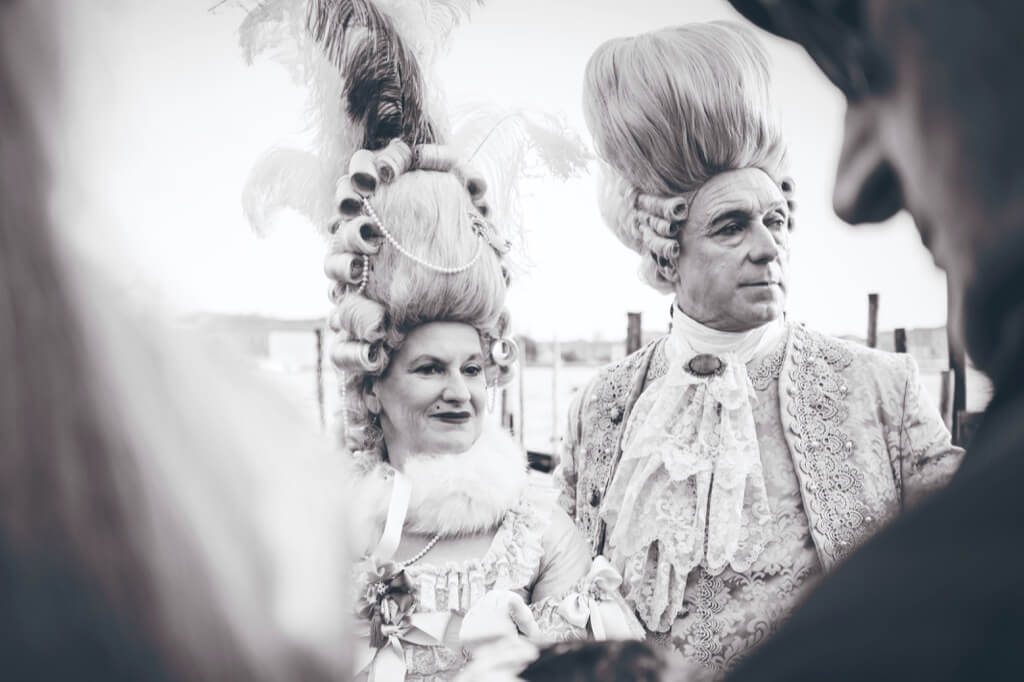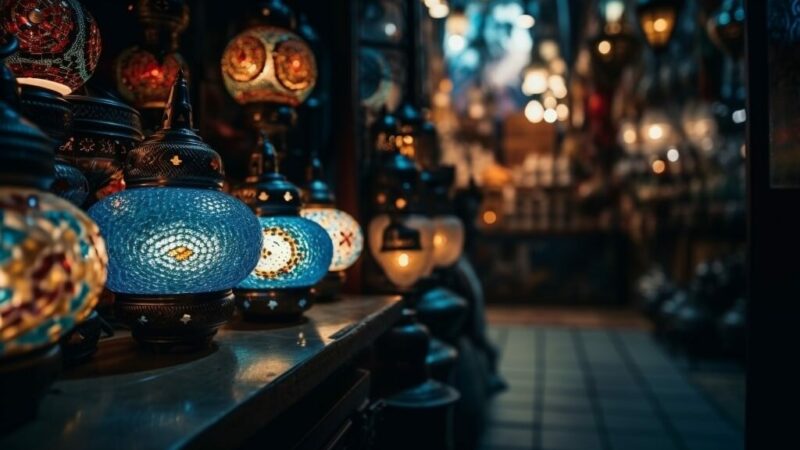The Apollo missions, spanning from 1969 to 1972, are heralded as one of humanity’s greatest
Why Do Grandparents Smell Different?

Do you recall those childhood visits to your grandparents’ house and the unique smell that greeted you as you walked through the door? You’re not alone; many people can distinctly recall the scent associated with their grandparents’ homes. Surprisingly, there is a scientific basis behind this phenomenon. In this in-depth exploration, we will delve into the fascinating world of aging scents, uncovering the reasons why Grandma and Grandpa might have different aromas.
Dr. Eric Shapira, a respected gerontologist and author of “A New Wrinkle: What I Learned from Older People Who Never Acted Their Age,” argues that the fragrance often associated with the elderly is not merely a figment of our imagination. Instead, he posits that it is a natural part of the aging process. But what exactly is this aging scent, and why do we perceive it differently?
Describing the aging scent can be challenging because it varies from person to person. Some may characterize it as musty, while others find it slightly medicinal. It’s a scent that is not universally pleasant, yet it is undeniably linked to the aging process. But what scientific evidence supports the existence of this unique aroma?
Investigating Aging Scents
Recent scientific studies have delved into the intriguing world of aging scents, attempting to unravel the mysteries behind this phenomenon. One such study, conducted by Johan Lundström and colleagues at the Monell Chemical Senses Center, shed light on the complexities of aging fragrances. Their findings challenge preconceived notions and offer insights into the olfactory experiences of different age groups.
Lundström and his team embarked on a journey to understand how underarm aromas change with age. They conducted a meticulous study published in PLOS ONE, which involved middle-aged and older participants. Surprisingly, the results revealed that individuals in their mid-thirties had the least favorable scent, according to the survey. However, there was a twist in the rankings—Grandpa, despite being second best, had a more pleasant aroma. So, what did this study uncover about the preferences of middle-aged and older individuals regarding body odors?
To conduct their investigation, Lundström and his colleagues employed a unique approach. They attached absorbent pads to the inside of participants’ shirt underarms. Volunteers from various age groups were instructed to wear these shirts for five consecutive nights. To prevent other odors from interfering, the shirts were sealed in plastic bags when not in use. Participants were also asked to avoid exposure to strong-smelling substances like cigarette smoke or perfume and to use unscented soaps and shampoos.
At the conclusion of the five-day period, the pads were carefully sealed in jars and left to accumulate odors. Other volunteers were then invited to open these jars and evaluate the pads, gauging their level of odor and attempting to guess the age group of the wearers (young, middle-aged, or old).
The results of the study were intriguing. Volunteers exhibited a moderate degree of success in identifying which pads were worn by older individuals. However, their accuracy was limited when distinguishing between young and middle-aged participants. This raises the question: What factors contribute to the belief that our sense of smell changes as we age?
Numerous factors are believed to influence the perception of changing scents with age, although the precise nature of these factors is still a subject of debate. Dr. Eric Shapira, mentioned earlier, suggests that dehydration plays a role in this phenomenon. Due to reduced water intake compared to younger individuals, the elderly are more susceptible to dehydration, which can lead to increased skin dryness and potentially a musty odor. Additionally, declining oral hygiene, often due to less effective brushing, can contribute to unpleasant breath—an olfactory factor closely associated with aging.
In the year 2000, a group of Japanese researchers approached the subject of aging scents with a more scientific mindset. Their investigation revolved around a molecule known as 2-nonenal, which is present in perspiration and on the skin and has an unpleasant odor. They made a fascinating discovery—2-nonenal concentration increases with age. By the time individuals reach their 70s, the level of 2-nonenal can be up to three times higher than in middle-aged individuals. The researchers attribute this increase to the breakdown of omega-7 fatty acids on our skin. Intriguingly, 2-nonenal is not only associated with aging scents but is also a significant contributor to the distinct aroma of beer.
The living conditions of elderly individuals can also play a pivotal role in the development of unique aging scents. Many of us have relatives who hold on to or even hoard possessions from their past. Brenda Thompson, head nurse of Tri-County Home Nursing, points out that the musty smell in houses filled with dusty books, papers, linens, and clothing can be overwhelming. Some items may have been in the same location for decades, accumulating dust and emitting an enduring scent.
An intriguing aspect of aging scents is the change in gender-related aromas that occurs around the age of 80. Men, in particular, start to emit scents that are more reminiscent of women. While hormones are often implicated in this transformation, the exact cause remains a subject of debate and exploration.
The Enigmatic Nature of Scents and Memory
Scents hold a unique power over our memories and emotions. A faint hint of perfume in a mall might transport us back to the era of our high school romance. The smell of burning leaves or a barbecue can evoke happy memories of outdoor gatherings with loved ones. Yet, despite our understanding of the unique scent associated with aging, many questions remain unanswered.
As we contemplate the intriguing world of aging scents, we are left with lingering questions. Will we develop this distinctive aroma as we age? Will our grandchildren be curious about our scent as they embrace us, much like we were when we visited our grandparents’ homes? Will their clothing carry our scent after spending time with us? These mysteries remind us that the world of scents is as enigmatic as it is captivating.
In this comprehensive exploration of aging scents, we have peeled back the layers of a phenomenon that has intrigued and puzzled generations. As we continue on our individual journeys through life, we may find that our sense of smell evolves, just as the rich tapestry of experiences shapes our existence.

The iconic “Wanted Dead or Alive” posters, a staple of Hollywood Westerns, did exist historically,

In the world of soft drinks, Coca-Cola reigns supreme. Its iconic taste, marked by a

On February 8, 1983, a significant event unfolded in baseball history as Mickey Mantle faced




